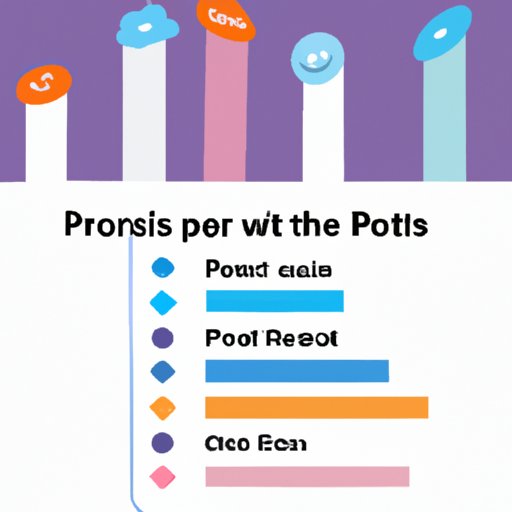Introduction
POS health insurance, or Point-of-Service health insurance, is a type of managed care plan that allows policyholders to choose from a variety of providers when seeking medical care. This article will explore what POS health insurance is, how it works, compare it to other types of health insurance, examine its benefits, understand its cost, and identify potential downsides.
Explaining What is POS Health Insurance and How it Works
POS health insurance is a type of managed care plan that provides policyholders with a flexible network of healthcare providers and services. When seeking medical care, policyholders can choose from a variety of in-network providers, as well as out-of-network providers. The policyholder pays a portion of the cost for services received and the insurance company covers the remainder.
POS health insurance plans typically include the following components:
- Primary Care Physician (PCP): A PCP is the policyholder’s primary point of contact for medical care. The policyholder must select a PCP from the network of providers offered by the insurance company.
- Referral: If the PCP determines that the policyholder needs specialty care, the policyholder must obtain a referral from the PCP before seeing a specialist.
- Coinsurance: Coinsurance is the percentage of the cost of medical care that the policyholder is responsible for paying. The remaining percentage is covered by the insurance company.
- Deductible: The deductible is the amount of money that the policyholder must pay out-of-pocket before the insurance company begins to cover medical expenses.
- Out-of-Pocket Maximums: Out-of-pocket maximums are the maximum amount of money that the policyholder must pay each year for medical care.

Comparing POS Health Insurance to Other Types of Health Insurance
POS health insurance can be compared to other types of health insurance such as HMOs and PPOs. HMOs are health maintenance organizations that require policyholders to select a PCP from within the network of providers offered by the insurance company. PPOs are preferred provider organizations that allow policyholders to choose from a wider range of healthcare providers, both in-network and out-of-network.
When comparing POS health insurance to other types of health insurance, it is important to consider the advantages and disadvantages of each plan. POS plans offer more flexibility than HMOs and PPOs, allowing policyholders to choose from a variety of in-network and out-of-network providers. However, POS plans tend to have higher premiums and deductibles than HMOs and PPOs. Additionally, it may be difficult to find specialists in an out-of-network setting.

Examining the Benefits of POS Health Insurance
POS health insurance offers many advantages to policyholders, including lower out-of-pocket costs, a flexible network of providers, and the ability to customize coverage.
One of the greatest benefits of POS health insurance is the potential to save money on out-of-pocket expenses. With a POS plan, policyholders typically pay lower copays and coinsurance than they would with an HMO or PPO. Additionally, POS plans typically have lower deductibles than other types of health insurance plans.
Another benefit of POS health insurance is the flexibility to choose from a variety of in-network and out-of-network providers. This allows policyholders to seek care from their preferred provider, without the need for referrals or pre-authorization from their insurance company. Additionally, POS plans allow policyholders to customize their coverage to meet their specific needs.
Understanding the Cost of POS Health Insurance
The cost of POS health insurance is determined by several factors, including premiums, deductibles, coinsurance, and out-of-pocket maximums.
Premiums are the monthly payments that policyholders must make in order to maintain their coverage. Premiums vary depending on the type and amount of coverage selected.
Deductibles and coinsurance are the amounts that policyholders must pay out-of-pocket for medical care. Deductibles are typically higher for POS plans than for HMOs and PPOs. Coinsurance is the percentage of the cost of medical care that the policyholder is responsible for paying.
Out-of-pocket maximums are the maximum amount of money that policyholders must pay each year for medical care. These limits vary depending on the type of plan selected.

Identifying Potential Downsides of POS Health Insurance
Although POS health insurance offers many advantages, there are some potential downsides to consider.
One downside of POS health insurance is the potential for limited provider networks. Depending on the plan selected, policyholders may only have access to certain providers, which could limit their options when seeking medical care. Additionally, POS plans tend to have higher premiums and deductibles than other types of health insurance plans.
Finally, it can be difficult to find specialists in an out-of-network setting. This can be especially true for rare or specialized conditions, as these specialists may not be available in the policyholder’s area.
Conclusion
In conclusion, POS health insurance is a type of managed care plan that provides policyholders with a flexible network of healthcare providers and services. POS plans offer many advantages, including lower out-of-pocket costs, a flexible network of providers, and the ability to customize coverage. However, there are some potential downsides to consider, such as limited provider networks, higher premiums, and difficulty in finding specialists. It is important to research and compare different plans to determine which one best meets your needs.
(Note: Is this article not meeting your expectations? Do you have knowledge or insights to share? Unlock new opportunities and expand your reach by joining our authors team. Click Registration to join us and share your expertise with our readers.)
